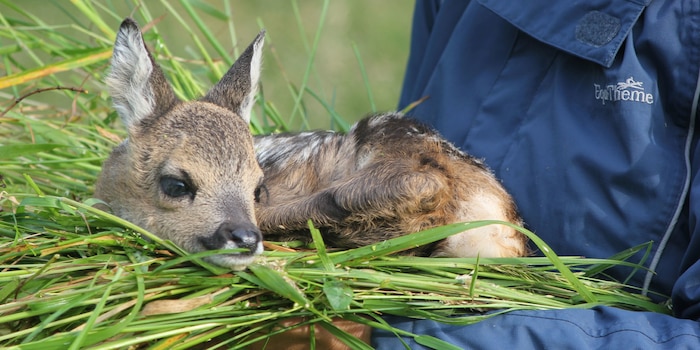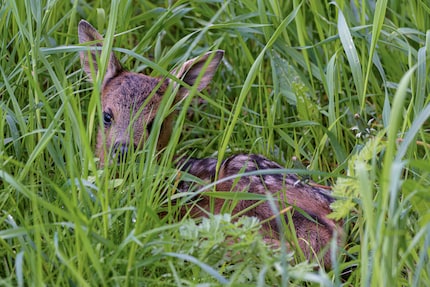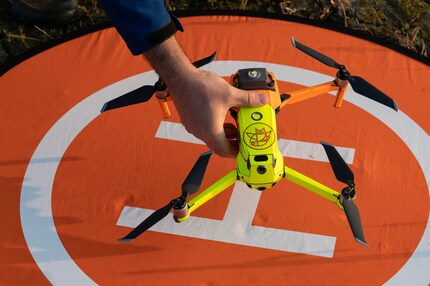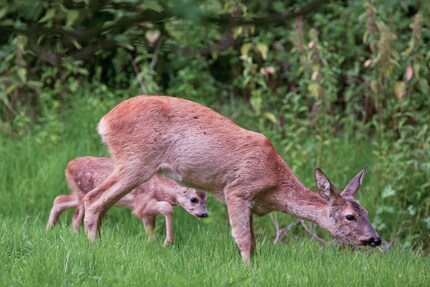

Animal welfare rushes to Bambi's aid with its own drones
Drones are an effective means of rescuing fawns. In order to find even more young animals before mowing, the "Schweizer Tierschutz STS" is now using its own fleet of drones.
Every spring and summer, thousands of fawns face an agonising death at the hands of mowers. This is because deer mothers place their offspring in the tall grass after birth to protect them from natural enemies such as the fox.
Unfortunately, the so-called settling period of the deer coincides exactly with the mowing, the hay harvest in agriculture. As a result, the supposed protection for the fawn quickly becomes a deadly threat when farmers mow their meadows and fields with their large machines.
According to hunting statistics, around 1700 fawns succumb to mowing every year in Switzerland. And these are just the official figures. In reality, there are probably many more.

Source: Shutterstock
I am the eye in the sky
Since their emergence, drones have increasingly established themselves as an effective tool for fawn rescue. Today, they are even regarded as the safest and, above all, fastest method of bringing young wild animals to safety from mowing machines. Multicopters equipped with thermal imaging cameras fly over fields and meadows before mowing to locate hidden fawns.
Animal welfare flies to the rescue
Through the use of drones, the association "Fawn Rescue Switzerland" has been able to save more than 8,000 fawns in recent years, over 3,000 of them last year alone. The number is likely to rise even further in future. Since this year, the "Schweizer Tierschutz STS" has its own fleet of drones, which it makes available for fawn rescue.

Source: STS
The STS drone fleet consists of seven DJI Mavic 3T multicopters. They are all equipped with thermal imaging cameras, which is essential for fawn rescue.

The early drone "catches" the fawn
The most effective time to search for fawns by drone is before sunrise. As soon as the sun shines on a field or meadow, a fawn is difficult to recognise with a thermal imaging camera. This is why a drone mission can start as early as four o'clock, even earlier in summer, writes David Bolliger from "Fawn Rescue Switzerland" on request.
If the drone detects an animal, it is secured with a crate by human helpers. The parties involved then discuss whether to mow around it or temporarily remove the fawn. With the latter option, the fawn is released immediately after mowing.

Source: Shutterstock
This year, due to the weather conditions, the setting period and mowing started later than usual. "The volunteer drone pilots have been in constant use since the end of May," reports David Bolliger. Since then, successful fawn rescues have been recorded on a daily basis. "Fawn Rescue Switzerland" plans to present exact figures at the end of July.
Volunteers ahead
Are you a drone pilot and would like to support fawn rescue? Then sign up right away here. This will let you know when exactly "Fawn Rescue Switzerland" is organising an information event in your area. You will then find out what requirements you and your drone need to fulfil.
You can also help if you have no experience with flying a drone. The association is also happy to receive active support in other areas.
Cover photo: STSI'm a full-blooded dad and husband, part-time nerd and chicken farmer, cat tamer and animal lover. I would like to know everything and yet I know nothing. I know even less, but I learn something new every day. What I am good at is dealing with words, spoken and written. And I get to prove that here.